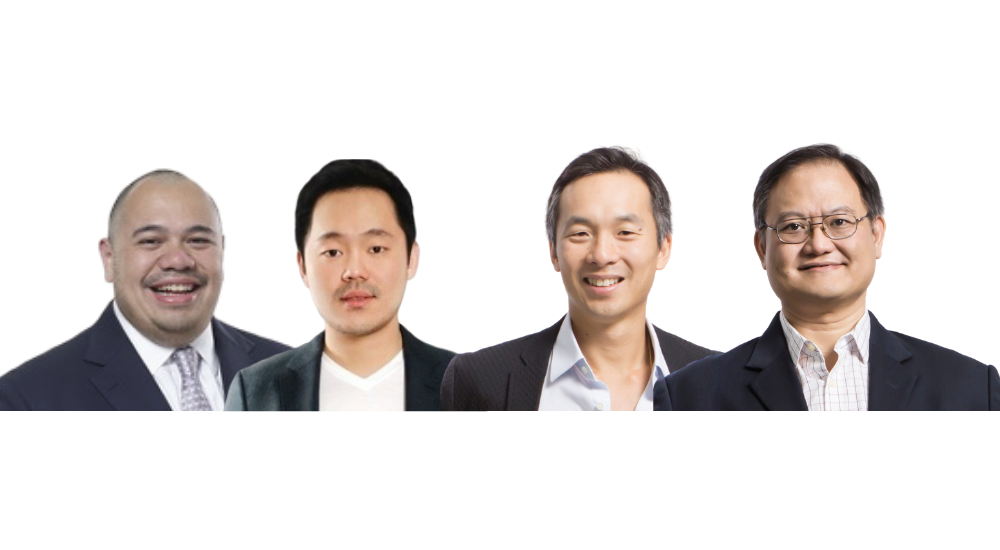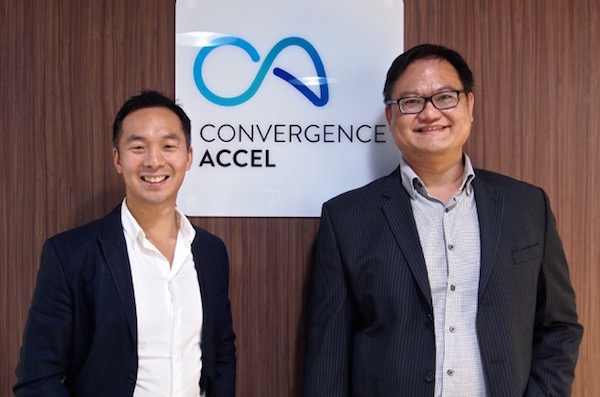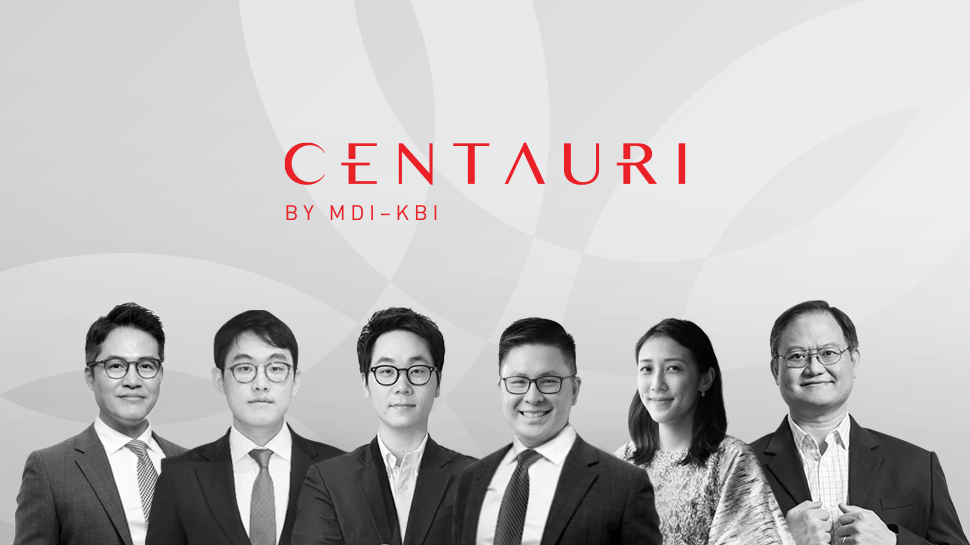Donald Wihardja: From a Business Consultant to a Real Role in Building a Technology Investment Ecosystem in Indonesia
He believes that in an effort to build a technology investment ecosystem, one must have sufficient knowledge and experience in running his business
This article is part of DailySocial Mastermind Series featuring innovators and leaders in the Indonesian technology industry to share stories and perspectives.
Donald Wihardja has more than 20 years of experience applying technology to various industries, from telco to banking to web startups, as a manager, advisor, consultant, investment manager, and entrepreneur in Indonesia. He believes that to be able to build a technology investment ecosystem, one must have sufficient knowledge and experience in doing technology business.
He had started the journey with a wrong step. He left Silicon Valley in 1995 with the belief that Indonesia was ready to experience a technology boom, realizing that he still had a long way to go to get to where he is today. However, he has made up his mind and entered the technology industry in Indonesia.
Donald has expertise in the field of data warehouse or what we now know as big data. It is able to use data to track business performance and make smart strategic decisions. He also learned how to use technology to transform business. That was the beginning of his career journey which deviated from a computer science background in electrical engineering to become a business consultant beyond a technology consultant in terms of programming.
He entered the investment industry through a Private Equity (PE) firm and gained enough knowledge to eventually quit and start a Venture Capital (VC), Convergence, with Adrian Li. For five years became businesses VC, he found an opportunity to channel his investment style. Through MDI Venture, its efforts are not only based on multiplying the company's money but also creating business synergy opportunities under the Telkom Group.
DailySocial had the opportunity to interview Donald, who was on leave at that time and was in the United States to discuss the technology investment ecosystem in Indonesia. It has a lot of variety insight on how to create a better environment in our country's technology industry in the paragraph excerpt below.
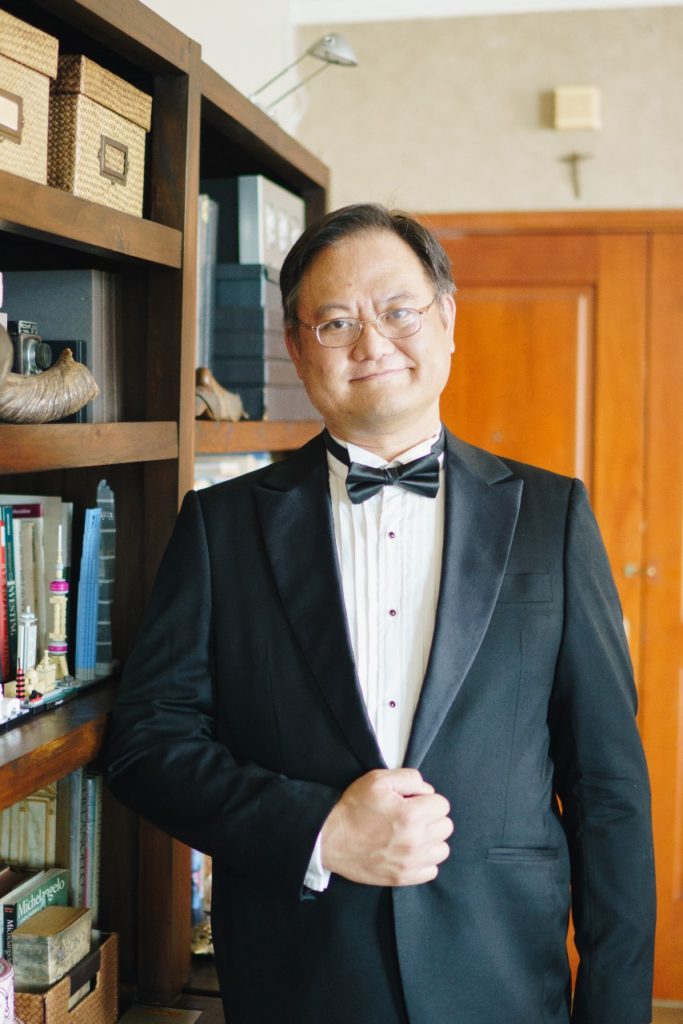 He believes that in engineering a technology investment ecosystem, one must have sufficient knowledge and experience in doing business
He believes that in engineering a technology investment ecosystem, one must have sufficient knowledge and experience in doing businessYou have more than 20 years of experience in implementing technology in various industries. What was it like in the beginning?
I started my journey on the wrong foot. I left American soil in 1995 convinced that Indonesia was ready to experience a technological boom, which occurred in the US around that time. I never thought I would have to wait 20 years and take part in its construction. However, I always believed that Indonesia would become hub the next technology and is on track even though realization is not fast.
In fact, it took Silicon Valley a hundred years to get to where it is today. Silicon Valley native entrepreneurs or Venture Capital invest in T-Model. Cars without custom build or mass production could create successful ventures a hundred years later. Bankers started investing in technology ventures and created success stories. More and more technologists are becoming rich and eventually taking part in the investment industry.
The biggest problem in the world of technology is technological risk. Is this real? Is this just an illusion? Are you ready or not? Investing is about knowing the difference between knowing private information and knowing public information. The more you know, the less risky the investment is. This is actually quite simple. If you know the recipe for building a successful startup, you will know how to concoct success in investing.
There is a concept that Indonesia will become a significant technology ecosystem, at least in Southeast Asia. I already missed the tech boom in the US, now my job is to build this ship so it doesn't get left behind a second time.
How was your first experience in trying to build a startup/technology industry in Indonesia?
I see my journey happening here. Looking back at my work in America, we were just coming out of a recession. Pay increases are slow and I'm not a patient person. I knew and was told of the potential to reach the level manager in a short time if you return to Indonesia. That's true.
My first job in Indonesia was as programmer for Hewlett Packard (HP) customer support systems. At that time, I increased my knowledge to business consulting and rejoined the company as project manager. This job is basically solving business problems with expertise Business intelligence and data warehouse or big data. This gave me exposure to business and technology issues.
I learned how to use data to track business performance and make smart strategic decisions. That is the product I sell. From that experience, I learned the technical side of how to use technology to transform business.
That's how Donald, a computer graduate in electrical engineering, ended up becoming a business consultant beyond a technology consultant in terms of programming.
In 1998, there was a recession. All my fellow consultants were sent to other countries. I refused to leave and preferred to build my own technology software development company with my partner at the time. Apart from that, we also tried to build something similar to Tokopedia in '98. We all know it didn't work because the market didn't support it and users weren't ready.
From that crisis, I learned that while the rest of the world has evolved, we are a generation behind in terms of data and connectivity. Consumers back then were so far behind, they could barely browse the web. The ratio of population to people who have access is too far. Everything moves slowly. This problem cannot be left alone.
You have an educational background in electrical engineering and computer science, then switched to becoming a business consultant. What prompted you to enter the investment industry?
In 2005, I was invited to join a Private Equity or PE (at that time I was building programming and other companies), called Quvat. I learned how to raise funds for companies along with all the documents related to investment agreements. I am grateful to work at a company with a very educational culture. I am required to study subjects outside my field of work to improve my quality. This was the moment I knew what I wanted to do.
My first project was building fiber optic cable, allowing Indonesia to catch up with two generations of technology. At that time, Indonesia finally experienced its first spike with bandwidth full. Bandwidth in Indonesia it can be up to 90% cheaper. Then, people started to get interested and were willing to pay more. After all this time, Indonesia is finally ready.
There came a time, I realized that Quvat would never invest in startups. That's the difference between PE and VC. If my future was going to be tied to the technological revolution, PE was not the place. I should be in a startup or VC. After a long time with Quvat, the question arises "Where do you want to go from here? What can we do for your career?" then I answered that I wanted to quit and join a startup. I left Quvat to join Indomog.
At that time I held the position as CTO of Indomog. Part of my job is to help companies build their business models. One of the biggest problems at the time was that everything in technology was labeled free. Startups can't make money in Indonesia because there is no way to get paid. While in the US it's very easy, they have credit cards, but it's different here. Therefore, we built a cashout infrastructure, specific to the gaming industry.
That is the embodiment of Indomog's thesis. However, from day one, we knew that the thesis was to build more than just a payment solution for games, but for commerce. One thing I realized, if a technology explosion was going to happen in Indonesia, I needed to help solve the problem. With this startup, I chose to solve the payment problem.
Then another problem arose, Indonesian startups did not have VC funding because we did not know how to raise money from investors. Apart from that, investor awareness in Indonesia is still lacking. While working at Indomog, I helped several other startups with related knowledge convertible notes etc. That's when I saw VC as the next problem to be solved. Then, when Adrian Li came up with the idea of Convergence, I decided to join.
I joined Convergence to take advantage of the opportunities that exist for venture capital in Indonesia. At that time, there were far fewer VCs than people creating startups. I'm too old to be a programmer. After all, Quvat has prepared everything for me to be businesses. At that point, my experience at Quvat and building startups over the years gave me enough knowledge to be businesses in VC.
While in VC, I also realized how premature the Indonesian VC ecosystem was. Therefore, together with our VC colleagues in the field, we created Amvesindo. It is more of a PMV and VC lobby group and a bridge to the government.
How would you describe your career transition from Convergence as a Venture Capitalist to MDI Ventures as a Corporate Venture Capitalist?
At Convergence, we learned how to invest as minority shareholders. We see and believe that founders know much more than VCs when it comes to running a company. Additionally, we do not take over companies. We give them capital to grow. This is a high-risk business, therefore, we need to find the right assets and only invest in companies that we can really grow.
When starting out as a business consultant, I always acted more as a mentor. That's why, when MDI opened an opportunity, I felt more suited there. As CVC, MDI not only has a mandate to multiply money, but also encourages how startups can create revenue for Telkom. This forces the team to have a synergy division whose job is to ensure that these startups work together with Telkom. This also allows me to have an active role in developing startups.
Telkom, on the other hand, has generated more revenue from its corporate business than it has invested in investments. Therefore, no matter how much capital gain I make in investments will not make much difference to the group. What they really need is what kind of innovation and digitalization we can bring. This is where I realized that I was in a company where I was required to stop worrying about making money and start by creating business opportunities for startups. Granted, that's not exactly how the company translated it, but I chose to interpret it that way.
I want to take the digitalization needs at Telkom and deliver them with solutions that have been proven by startups. That's the work I want to do. Therefore, we focus on startups at later stages. As time goes by, the startup becomes more stable and is able to provide income and synergy with Telkom. MDI itself has several managed funds, we also have funds for the initial stage. However, in every company we invest in, we try to build relationships and synergies with Telkom. How can we comfortably make sustainable investments, while building company growth?
Not long ago, MDI's portfolio, RunSystem, announced its IPO. I'm interested to know your perspective on an IPO, is this the most ideal exit route?
At MDI, we have two KPIs, money multiple and synergy. For CVC, we focus more on synergies because the impact is greater. However, one day we will also face this question, "How much money do you bring back to the company?". To answer this, we need a way to prove that we have succeeded in giving twice as much money as was given. More importantly, we can build exit in investment. Any success that synergy can bring will be meaningless if the company you invest in dies. I will no longer be trusted with money.
To balance the two, we created a system to prove our value estimates in each portfolio. Furthermore, we have successfully generated exit, bringing real profits to the company. Becoming one of the Telkom Group subsidiaries with the highest net profit performance. That's about exit.
The ideal exit is one that multiplies more money, however An IPO is an exit that has real impact. This is a way to prove the maturity of the Indonesian technology ecosystem because the information will go public. The more mature Indonesia's investment ecosystem is seen by the world, the more investors will come, and the faster we will grow. IPO is a barometer of Indonesia's healthy investment ecosystem. Although IPOs may only be carried out by 10%-20% of startups with a good track record.
On paper, Indonesia has many startups with valuations that are too high and are still increasing. However, what is the meaning of valuation if there is no way to exit. That's why Indonesia needs to build a more successful IPO story, to prove that we have an investable technology ecosystem. MDI has exit through IPO twice, in Australia and Japan. With RunSystem, MDI is on the right track. Apart from that, we will also have some new news regarding this issue in the near future.
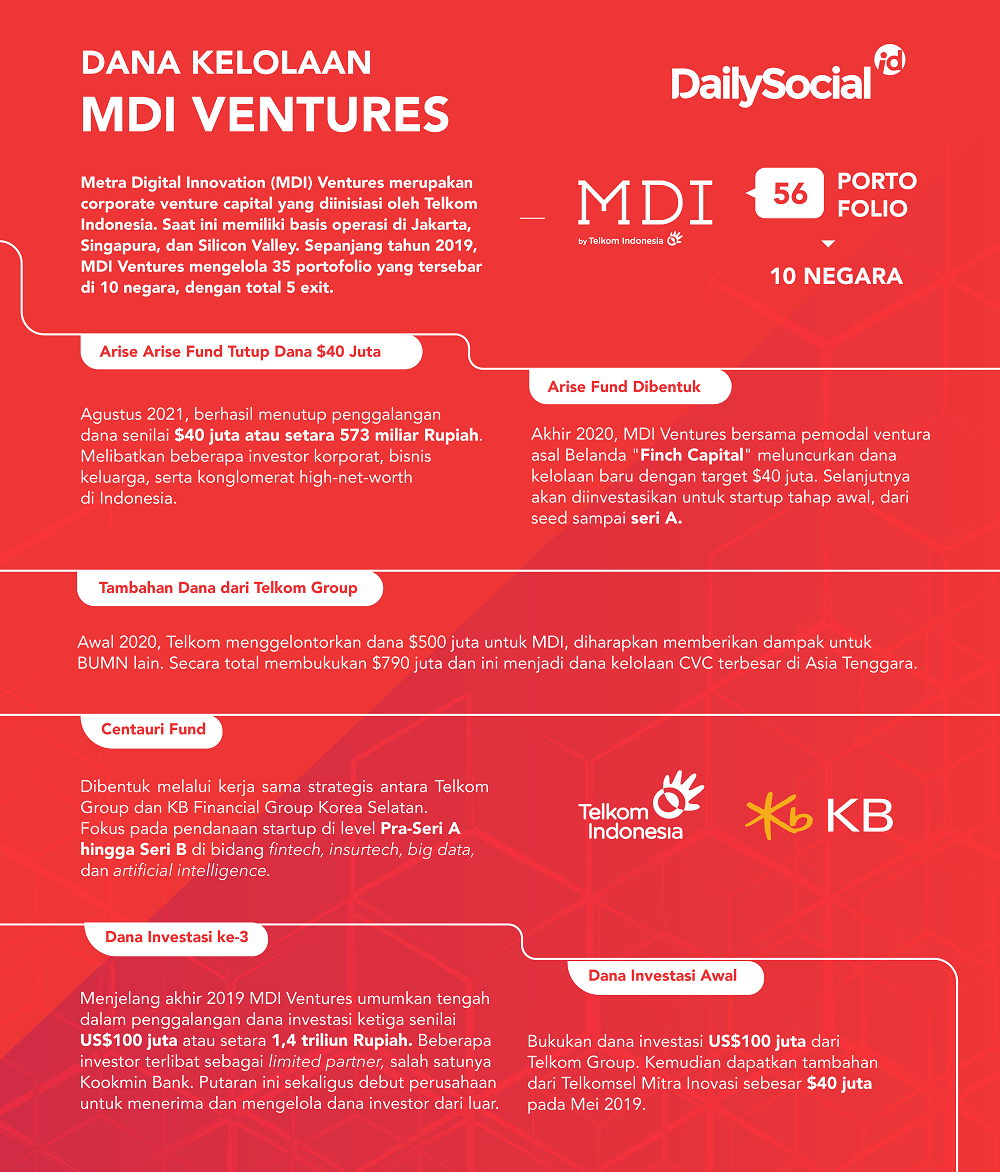
Over the years of your work, what challenges have you faced on your way to this point?
The biggest challenge over 20 years of experience is public trust. It's hard to get people to believe in Indonesia's tech ecosystem when we can barely surf the internet. Imagine that this country will become an investment destination or even a technology destination, and our technology will have a significant impact. When we can build self-confidence, it will have multiply effect the good one.
Therefore, ensuring digital transformation has a large impact is very important so that it gets sufficient support from all stakeholders in the country. So that the digital startup ecosystem in Indonesia continues to grow, we need to understand and fight for it together. This is not a one person job. Collaborating to build a vision of Indonesia's future, this must be developed and marketed to enrich the Indonesian ecosystem with competition and diversity.
Is there anything you would like to convey to technology activists who are trying to take part in developing Indonesia's technology ecosystem?
It's a great time, especially with the pandemic and all that. There is a saying "Don't let a good crisis go to waste". A crisis is indeed the time to show your abilities. It's a great time to join the tech revolution in your own way whether as a VC, company, founder, or otherwise. Because never before has Indonesia been more ready for digital transformation. We're not near the end. Get us more startups and more mature VCs with more mature investors. In whatever field you are interested in, join the industry. This is a call to action.
You once stated that returning to Indonesia was at the wrong time. Is there any regret? Right now, is there something you really want to do but haven't had the chance to make it happen?
Actually, currently my focus is on creating digital transformation in an ecosystem supported by many state-owned companies. How can we use existing customers to be digitized by startup players? We can identify which digital ecosystems are ready for development based on business opportunities captive market in state-owned companies but also supported by proven solutions from startups. In this way, I can level up as a CVC who not only introduces startups to the Telkom group but also creates opportunities beyond what startups or Telkom think to create more impactful innovations.
-Original article is in Indonesian, translated by Kristin Siagian
Sign up for our
newsletter
 Premium
Premium
